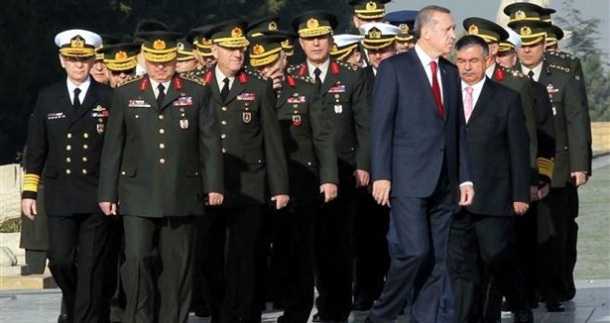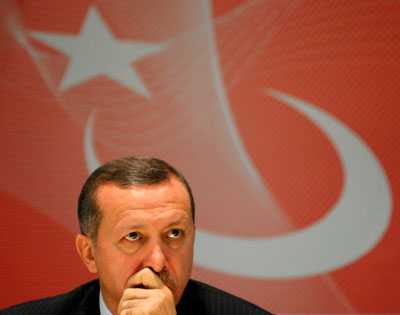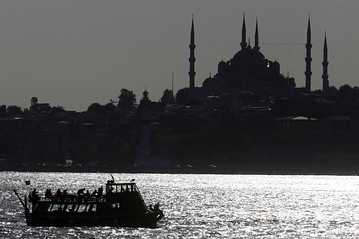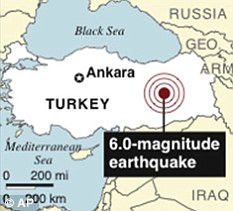Turkish officers are resigning en masse to avoid arrest and sentencing for conspiracy against the government. The cabinet of PM Erdogan is winning the decade-long battle with country’s once almighty generals.

Mass detentions of both serving and retired officers have been taking place in Turkey over the last decade. The country’s media is closely following a number of trials against top brass accused of plotting against the ruling government.
Over at least the past half a century, the Turkish armed forces have been notorious for regular interference in domestic politics, organizing several coups to displace governments and generally having great influence on the political landscape.
Turkish high brass has always been proud of staying guard of the secular nature of the Turkish state, the legacy of the founder of modern Republic of Turkey, the iconic first president, Mustafa Kemal Ataturk.
But when in 2002 Recep Tayyip Erdogan and his Justice and Development Party (AKP) won nearly two-thirds of the seats in parliament, the situation changed dramatically.
The new prime minister of Turkey and his party, considered moderately Islamist, felt vulnerable towards an armed forces with traditionally strong political positions.
The power struggle between Erdogan’s government and the military was predetermined, Andrew Finkel, journalist and author of “Turkey: What everyone needs to know”, told . In the eyes of the military the AKP symbolized the threat to Turkey’s secularism, whereas Erdogan’s party eyed the armed forces as a dictator that has been telling the country what to do for too long.
The ruling party and its leader began a gradual consolidation of power which, in several years’ time, ended with the initiation of a massive legal assault on the recent determiners of the country’s fate.
The first was heard in Turkey in July 2011, when navy, army and air force commanders stepped down over a rift with the Erdogan government. This was a result of multiple arrests of officers accused of plotting a coup against the government, with proven Islamic roots, reports at the time said.
Despite that, Turkey continued arresting officers and initiating a number of conspiracy trials against the top brass.
In September 2012, after a 21-month trial, a court sentenced three former army generals to 20 years (initially lifetime sentence) each in prison for plotting a coup. The court stated that the defendants were planning to wage a war with neighboring Greece and organize explosions in Turkish mosques to justify a coup d’état against Erdogan’s government almost a decade ago.
Together with the generals, nearly 330 officers, including senior ones, were convicted for the would-be coup. All the defendants denied the charges as unfair and unlawful, claiming the evidence had been fabricated.
Hundreds more Turkish officers remain on trial right now on a number of conspiracy cases against the state.
“Altogether, about 15 per cent of the top brass, that is colonels and generals, actually are on trial,” American journalist Andrew Finkel told . “This is the main cause of this major disillusionment within the army.”
According to media reports, around 10 per cent of all Turkish 348 generals and admirals are currently locked behind bars.
High-ranking military officers began to leave Turkish Armed Forces
In late January 2013 the exodus of Turkish officers from the army was given a new push. Turkey’s number-two naval commander Admiral Nusret Guner resigned, allegedly over the detention of hundreds of his colleagues. His premature voluntary retirement sparked yet another wave of resignations.
“In the past few years my comrades in arms, some of whom I know very closely and about whose patriotism I have never felt the slightest doubt, have been found guilty through verdicts handed down by courts in the name of the nation,” Nusret Guner said, delivering a farewell speech to his colleagues. He also said he had demanded to be allowed to resign last September, immediately after the sensational coup d’état trial, but his submission was not granted.
Among other reasons, the admiral explained he wanted to retire as soon as possible because “a series of plots involving me could be constructed,” he said.
According to reports, some 110 Turkish Air Force officers followed the example of the commander’s resignation.
“I think these pilots have decided ‘well, no one really loves us, we’ve served the 10 years minimum time, let’s just take our pensions and get a better job in a private sector’,” Finkel supposed.
In the meantime Erdogan’s Turkey has been actively supporting the rebel side in the Syrian civil war, though traditionally Ankara maintained good relations with Damascus.
Turkey has even been considering a military interference into the Syrian national affairs, but in the end opted not to do so.
Still, Ankara’s support to Syrian rebels promises to backfire on Turkey rather soon, as Kurdish separatists dreaming of the state of their own got much more active in both Turkey and Syria. And since the heaviest burden of confronting the armed attacks of the Kurdish militants lay on the Turkish army, the worsening personnel policy in Turkish army might create serious problems of directing troops in the nearest future.
In November 2012, Syrian President Bashar Assad told RT in an exclusive interview that Turkish PM Recep Erdogan believes “he is a caliph and the new sultan of the Ottoman Empire.” Back then Assad noted that Erdogan’s policies led to “zero friends”.
via Erdogan vs Army:Western strategists warn, the Turkish army is losing power / Turkey News.




